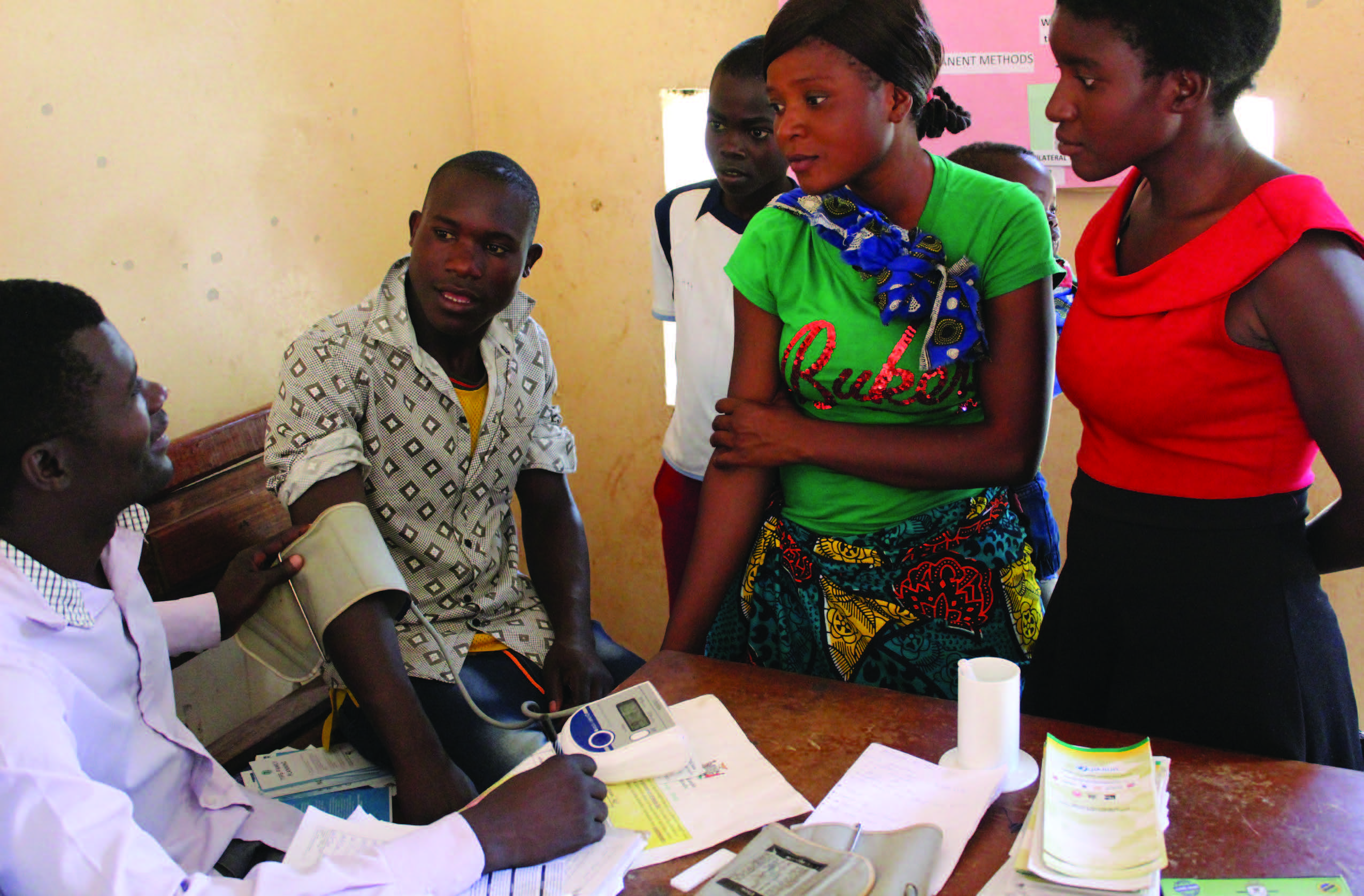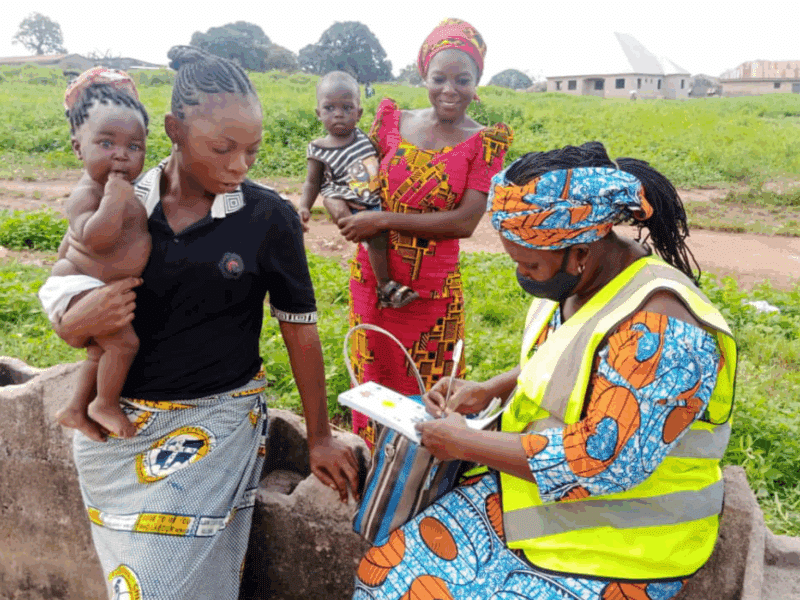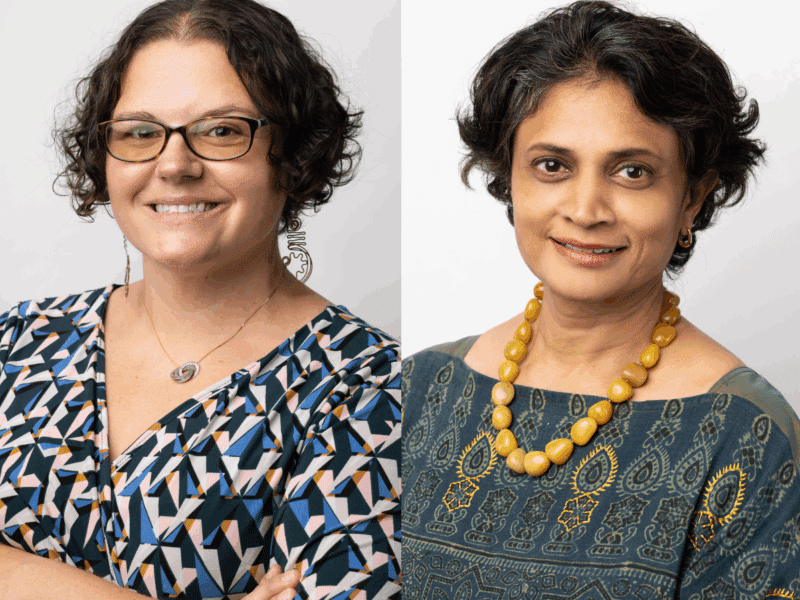There’s a teen pregnancy challenge in Zambia.
Roughly 59 percent of adolescent girls in the southern African nation become pregnant by the age of 19, and only 10 percent of adolescent girls ages 15 to 19 use modern contraceptives. Teenage pregnancies increased five-fold between 2002 and 2012. And, in 2007, births among adolescent girls accounted for nearly 12 percent of all births in Zambia.
When the Johns Hopkins Center for Communication Programs-led Breakthrough ACTION project came to Zambia in 2017, one of its goals was to figure out how to prevent these unintended teen pregnancies. The result was a program – developed with young people in the country – designed to break down barriers to accessing modern contraception, improve trust in health providers and approach adolescent health and wellness more holistically.
“When we started, young people were not particularly confident going to the health facilities to seek family planning services,” says CCP’s Uttara Bharath Kumar, who supported the Zambia work. “They found providers unsympathetic or judgmental, and worried about having their confidentiality breached. But the testimonials shared with us suggest that our work has enabled young people to overcome some of these obstacles and gain easier access to modern contraception.”
Two key components of the project helped achieve this. One was the development of Adolescent Wellness Days held monthly in nine districts around Zambia. On a chosen Saturday, a day when traffic to the health clinic would be slow, young people were invited in to talk about many health issues including personal wellness, malaria, HIV, nutrition and, of course, family planning.
The second component addressed the quality of counseling. Providers were trained specifically to counsel young people and to ensure their new young clients that they took confidentially seriously. Each provider learned to recite a confidentiality pledge at each visit and wore buttons committing to the same. “This gave the adolescents a little more confidence they could be open with those providers,” Kumar says.
The training appears to have paid off. “I was able to freely choose a family planning method of my choice after recently attending a wellness day event,” said one teen from Copperbelt Province in eastern Zambia. “I didn’t feel like the health worker was judging me. I felt like she was supportive and kind.”
Said Mercy, an attendee from Luapula Province in northern Zambia: “I am so lucky that I didn’t fall pregnant and I am able to continue with my school because I was on family planning. It saved my future. I feel sorry for my friend who is now pregnant and out of school.”
One health promotion officer in Copperbelt Province said she quickly saw an impact.
“It was gratifying and exciting to note that there was an increase in the uptake of family planning services among adolescents,” she says. “A review of data at the two Breakthrough ACTION-supported facilities in Kalulushi showed the number of new family planning acceptors among adolescents tripled.”
Breakthrough ACTION is funded by USAID.
Among the project’s other accomplishments to support the reproductive health of Zambian adolescents:
- Developed, produced and distributed 10,000 copies of a comic book called Precious Times on adolescent reproductive health in Zambia
- Created and shared adolescent reproductive health comic series Hooked, on the Zambia ‘Life is Precious’ Facebook page
- Developed and broadcast five radio spots on condom use and family planning for adolescents and young couples. More than 1,000 radio spots were aired on 15 national and community radio stations.
- Generated more than half a million views on Facebook of youth safer sex and contraceptive methods videos, featuring messages from renowned musician Wezi and boxing champion Catherine Phiri.
- Developed a social and behavior change strategy on adolescent family planning in Zambia and presented it to the National Family Planning Technical Work Group, as well as a video to show why family planning is important for adolescents in Zambia.





